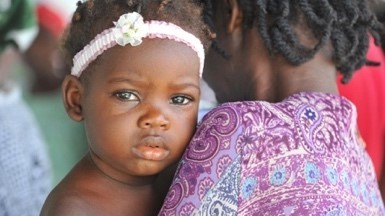
medi for help – Annual Report 2020
Dear friends of the orthopaedic care center of medi for help and the Albert-Schweitzer-Hôpital
Unfortunately, the Corona pandemic has also reached Haiti. The first infections were detected in late February 2020. For the first time in eleven years, the medi for help workshop had to close its gates for several weeks. The risk of a rapid spread of the virus is particularly high in Haiti. Many people cannot comply with the restrictions on leaving their homes, because they would otherwise have no income. Due to chronic pre-existing conditions like malnutrition and infections (tuberculosis, etc.), the course of the disease is far more severe than in Germany.
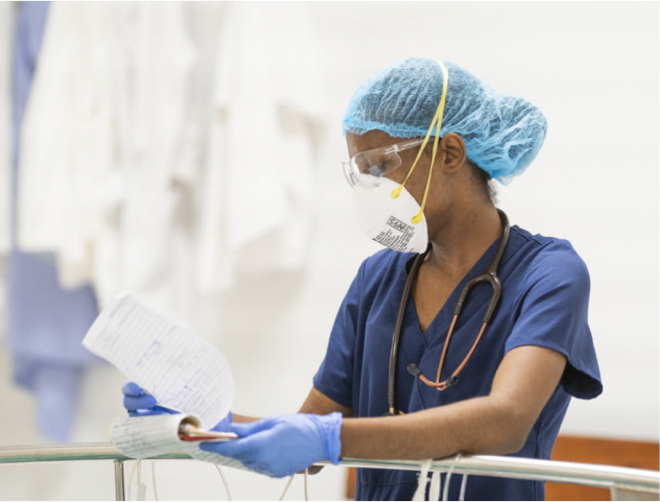
The corona pandemic has hit the poorest people the hardest! However, we were also concerned about the particularly vulnerable on-site staff. With our partners’ support, we quickly procured protective clothing and masks.
To protect both the patients and our team, we closed the orthopaedic workshop. The focus shifted to establishing a COVID-19 center.
Thanks to the quality of its medical care and its experience during the cholera epidemic (over 7,100 hospitalizations), the Haitian government named the HAS a COVID-19 center. The former cholera ward outside the hospital has been renovated and converted to accommodate corona-infected patients.
To limit contact and possible transmission of the virus, all suspected cases are referred to the COVID-19 center for assessment and treatment.
In early March, a COVID-19 contingency plan for mitigating the effects of the coronavirus was activated.
The emergency response included the following measures:
Treatment and tests
To date, 100 confirmed COVID-19 cases have been treated, with nine deaths. The HAS lacks the capacity to offer its own tests. The Haitian Ministry of Health has assigned a health officer to manage the testing process for all suspected cases.
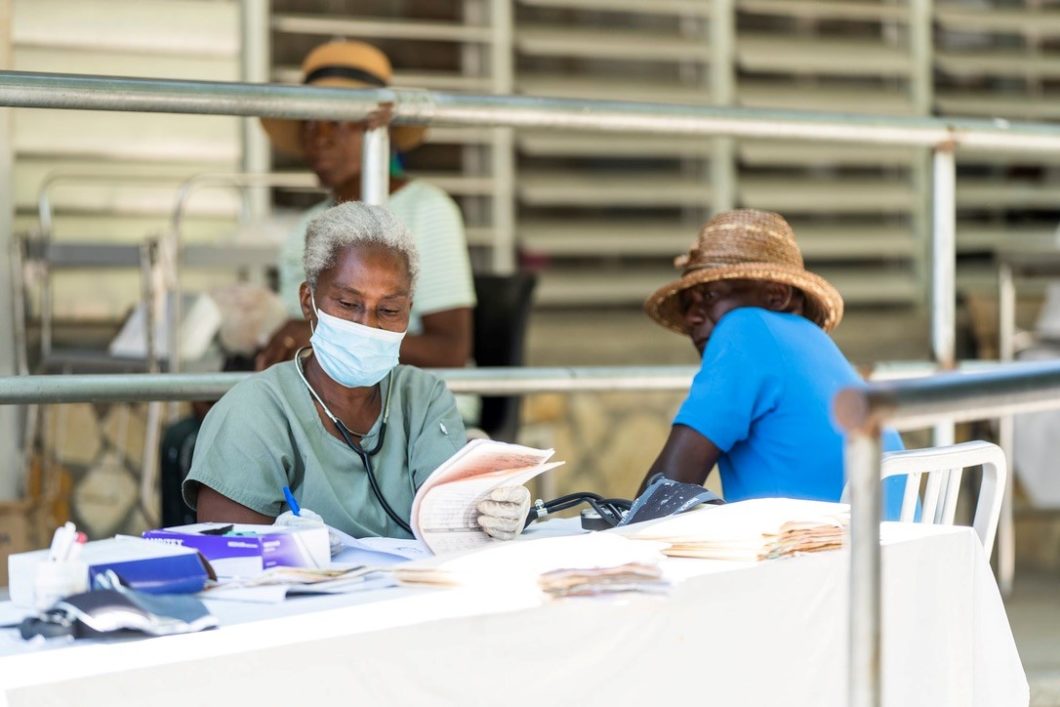
Explanation and containment
Because there is a lot of fear and stigma surrounding the coronavirus in rural Haiti, the HAS has deployed a robust communication and awareness strategy. Community health workers received thorough COVID-19 training and used megaphones to provide local and neighboring communities with information, to exchange messages about improving hygiene, and to increase social distancing. The hospital and orthopaedic care center enforced emergency protocols and containment procedures to reduce transmission of the virus.
Hand-washing stations
Additional hand-washing stations have been installed in the hospital, medi for help care center, on the campus and in the surrounding communities, and more tiltable water containers and hand-washing devices that enable contactless hand washing have been made available. More than 300 hand-washing stations and 139 tiltable water containers have been installed in and around the service community.
Surface-disinfecting agents and other disinfectants
COVID-19 caused a critical shortage on the market of bleach and all other surface disinfectants, even though these were sorely needed in hospitals and health centers across Haiti. Donor-funded upgrades to the water system included the addition of a MIOX (Mixed Oxidants) water purification system, which was used to produce a surface disinfectant 2.5 times more effective than chlorine/bleach. Producing the disinfectant is a cost-effective process, at three US dollars per gallon (one gallon equals around 3.79 liters), with a production volume of up to 200 gallons per day. Since March the HAS has delivered over 3,000 gallons of disinfectant throughout the healthcare system, as well as to the local police station, churches and schools.
Oxygen therapy
Oxygen therapy, along with fever control and hydration, is the main treatment for COVID-19 patients in Haiti. The HAS has been able to produce and store oxygen on site for a long time, but the oxygen generators are showing their age. Thanks to the generosity of the partners, the Caris Foundation and USAID, it was possible to install a new high-capacity oxygen generator that will ensure a reliable supply of oxygen for COVID-19 treatments and other needs in the years to come.
Continuation of basic utility services
The pandemic also brought municipal activities to a standstill. Under the new health regulations and procedures of the Ministry of Health and the new established COVID-19 protocols of the HAS, the plumbing, water and hygiene program fully resumed its activities in May 2020.
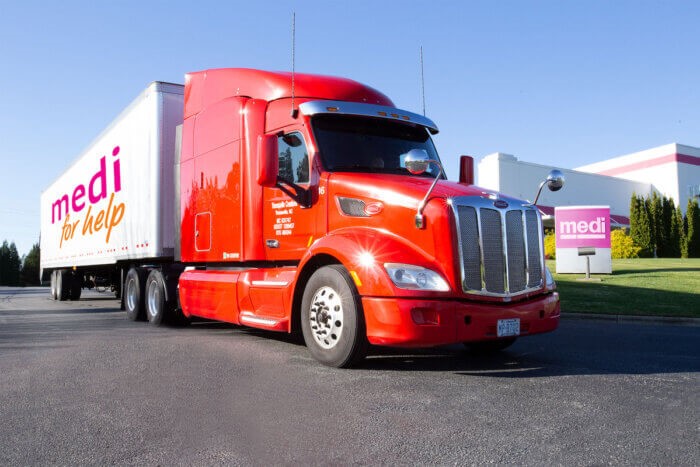
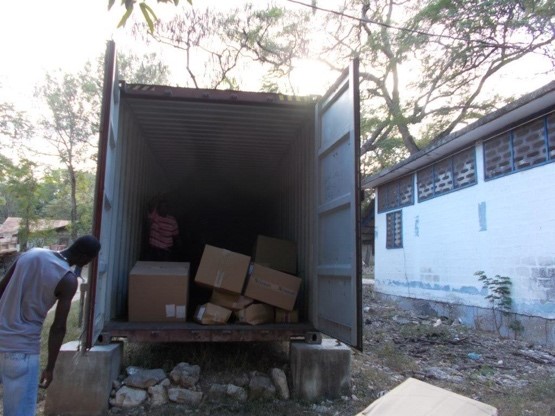
While treating and containing COVID-19 was the foremost concern, the medi for help orthopaedic care center provided important health services after reopening, albeit at a reduced level to comply with all measures of the emergency plan. We are facing major changes, which the care center must adapt to.
- The poor economic situation in Haiti had already led to a massive devaluation of the local currency (gourde) of around 20 percent in the previous year.
- The decline in donations brought planned funding to a halt.
- The violent uprisings of the political opposition against the unwanted president continued throughout the year. Even now most of the roads are blocked, and transporting food, fuel and even drinking water is often impossible. That is why we are all the happier that a container with orthopaedic components has arrived in Haiti. Thanks to a generous donation from the Össur company, care can still be provided.
Relocation of the region of care
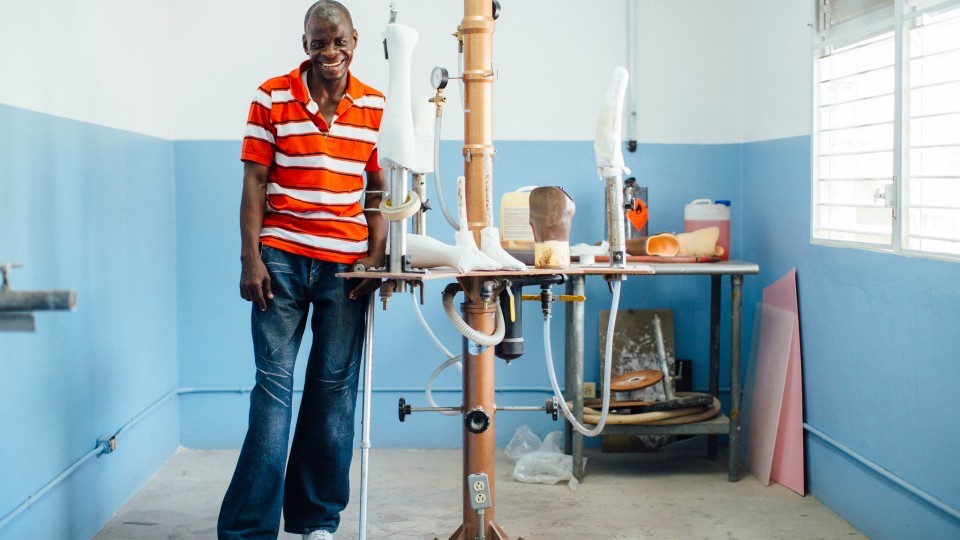
Care for leg amputees in Port-au-Prince has continued to expand. In addition to the workshop that we built together with partners in 2012/2013 and handed over to the St. Vincent’s Center for Children with Disabilities, other workshops have taken on responsibility for new and follow-up care.
This spares the patient the long and arduous journey to the medi for help care center in Deschapelles. This resulted in a new focus on the immediate region around the Albert-Schweitzer-Hôpital.
Changes in care – increase in accidents involving children and adolescents
Serious accidents involving children reach us every day, as motorized traffic increases and precautions such as helmets are not used.
With over 4,000 inpatient treatments per year, pediatrics is the largest department at the hospital.
As the number of accidents continues to rise, the trauma surgery department will be expanded.
The team at the medi for help workshop must adapt to these changes.
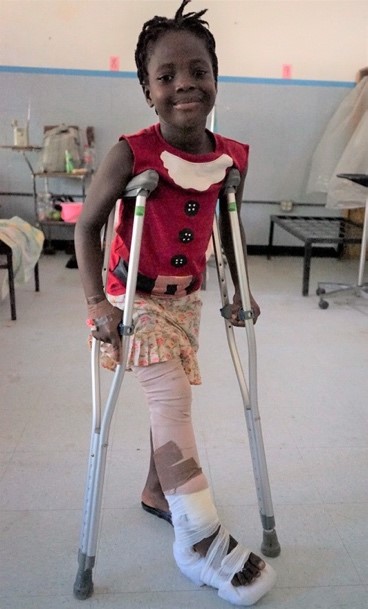
Care figures
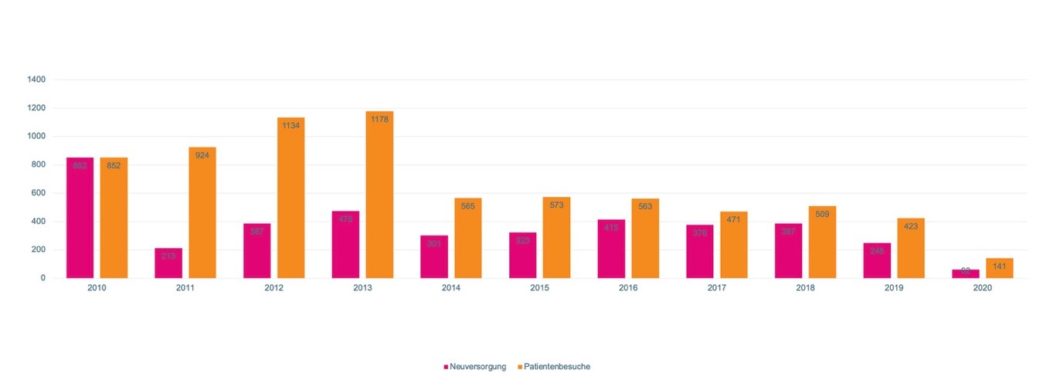
A country of continuing unrest
The course of care provision this year again reflects the difficulties that Haiti is struggling with. Apart from the politically motivated street fights of recent years and the corona pandemic, the success of our efforts to set up orthopaedic care in the capital Port-au-Prince and hand it over to St. Vincent’s in 2013 is becoming increasingly clear.
During the months between the closure of the care center and the decline in patient visits due to restrictions on leaving one’s home, we treated a total of 141 patients. This is almost half of the expected number. Over the entire period in which care was provided from 2010 to 2020, a total of 4,039 new aids were fitted, with 7,333 patient visits, making us one of the largest orthopaedic care centers in the Caribbean.
Orthotic care
The demand for orthotic fittings has increased significantly in relation to the demand for prosthetics. Our outstanding Haitian technicians have been trained, and the change of focus of care to post-traumatic joint injuries is a near-term goal, allowing us to offer comprehensive care here as well.
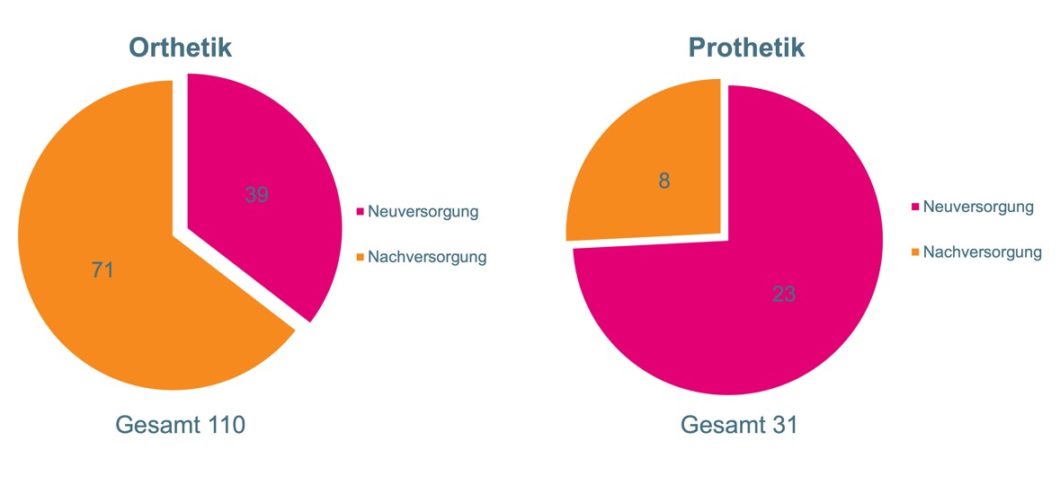
Another reason for this increase, in addition to the increase in traffic accidents, is the strong partnership between the orthopaedic care center and the physical therapy department of the HAS. By participating in morning rounds, the physical therapists can determine which patients would benefit from orthopaedic care and refer them to the care center. Often, they bring the patient to the clinic personally.
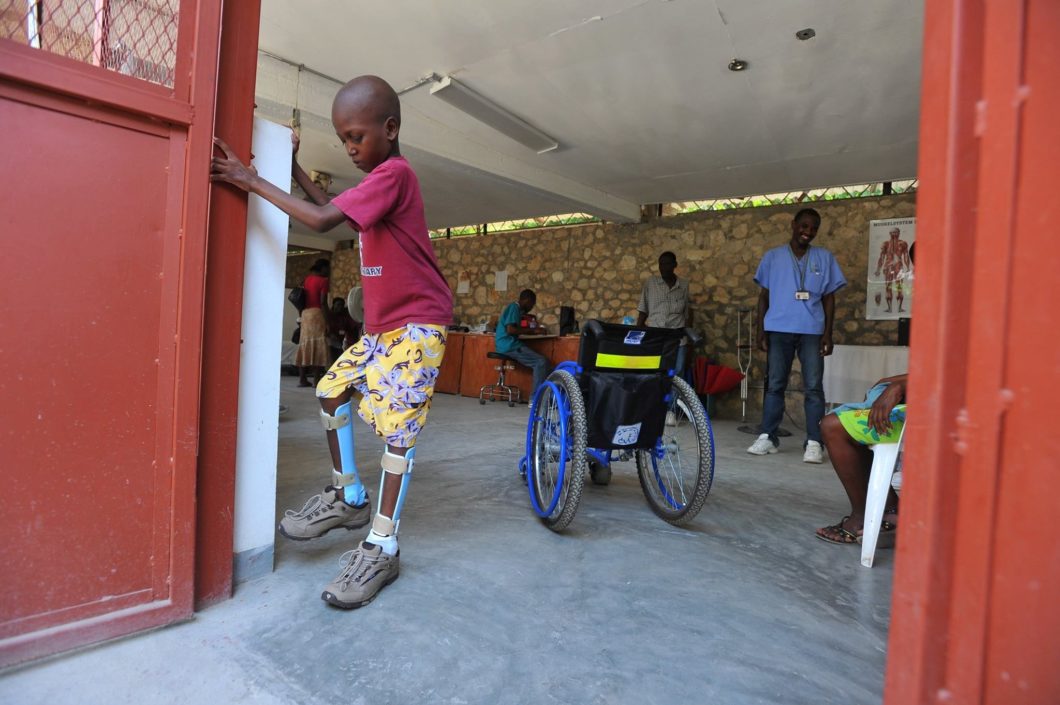
We are staying!
Because of the political uncertainty, many aid agencies have already left Haiti. This means that the people’s need is even greater.
However, we can only continue our numerous programs and projects with your help. Thank you very much for your support and solidarity!
Your medi for help team
You can also download the report as a PDF here.